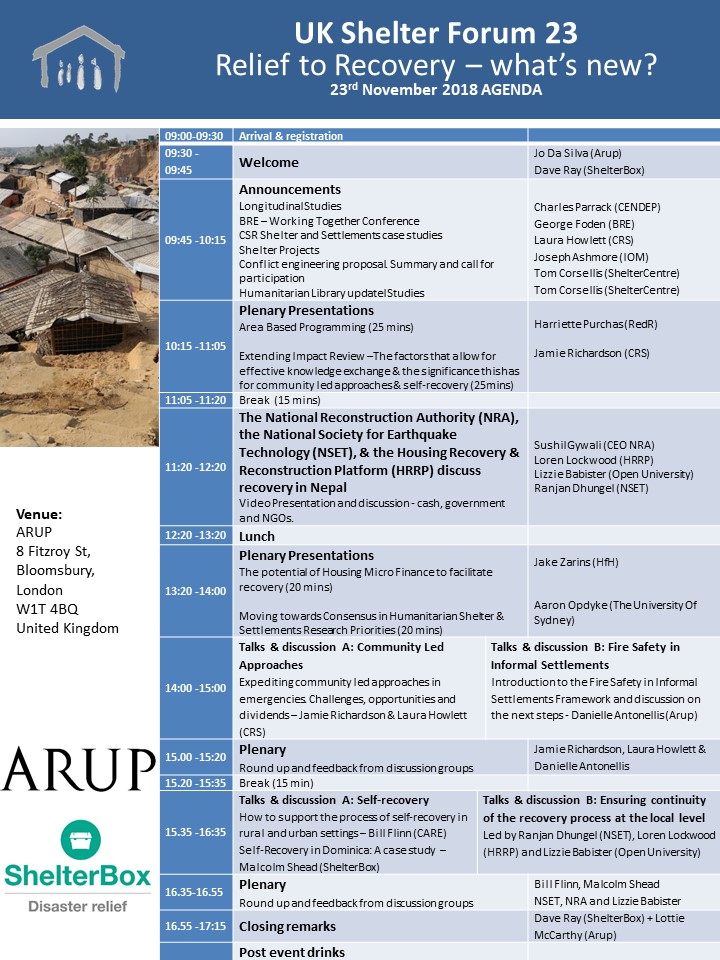The 23rd UK Shelter Forum was on the 23 November in London, co-hosted by Arup and ShelterBox.
Download the notes from UKSF23 here:
Announcements:
- Longitudinal Studies: Charles Parrack (CENDEP)
- BRE – Working Together for Disaster Relief Conference: Yetunde Abdul (BRE)
- CRS Shelter and Settlements case studies: Laura Howlett (CRS)
- Shelter Projects: Alberto Piccioli (IOM)
- Conflict Engineering Proposal and call for submissions – Tom Corsellis (Shelter Centre)
- Humanitarian Library Update – Tom Corsellis (Shelter Centre)
- Healthy Housing for the Displaced: Transitional Shelters – Dr Francis Moran (University of Bath)
Presentations
- Area Based Programming: Harriette Purchas (RedR)
- Extending Impact Review: Jamie Richardson (CRS)
- The potential of Housing Micro Finance to facilitate recovery: Jake Zarins (HfH)
- Moving towards Consensus in Humanitarian Shelter & Settlements Research Priorities: Aaron Opdyke (University of Sydney)
- Recovery in Nepal: NSET, NRA, HRRP, Lizzie Babister
Discussion group presentations
- Fire Safety in Informal Settlements: Danielle Antonellis (Arup)
- Community Led Approaches: Jamie Richardson (CRS)
- Self-recovery How to support the process of self-recovery in rural and urban settings – Bill Flinn (CARE). Self-Recovery in Dominica: A case study – Malcolm Shead (ShelterBox)
- Continuity of the recovery process at the local level: NSET, NRA and Lizzie Babister
Additional materials


